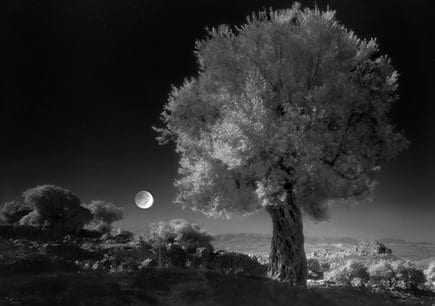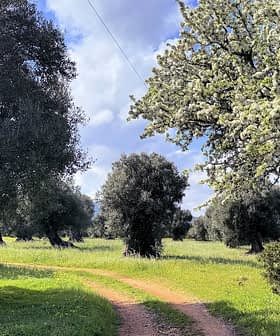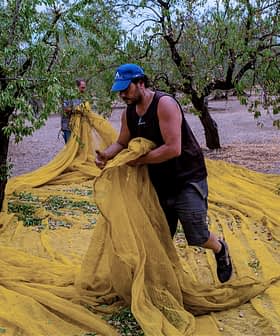
Olive harvesters in Italy are getting busy despite the haphazard weather conditions, with rainfalls and cold in Northern and Central regions and almost summer-like temperatures in the South. The high temperatures caused operations to stop for some days, to prevent spoiling of the olives. Beside making the picking harder, high temperatures can ruin the harvest, often causing fusty or mouldy olive oil as a final product. This is what happens when olives are stored for long time before being processed, causing an anaerobic fermentation that wastes them; the longer they stay, the worse it gets, and if it is warm the fermentation goes quicker.
According to experts and growers, environmental temperature can also affect the olive oil intensity and other aromatic features. During the early picking of olives in Ugento and the surroundings — an area blessed with sunny weather and warm temperatures almost all year long — the fruit’s temperature after it’s been pulled reaches and exceeds 27°C (80.6°F) both before the pressing and during the processing, thus voiding what the current regulations define as “cold extraction.”
An original solution was proposed by the olive farm Forestaforte, in Ugento, a small village in Apulia whose economy is mostly based on agriculture and wine and oil production. Run by Giovanni Melcarne, on the 16th October the Forestaforte oliveyard hosted a night olive harvest. Having been already implemented for the wine grapes harvest in Sicily, the night picking was an absolute innovation for olive harvesting in Italy. This was not only a promotional initiative, but also had a scientific purpose.
This was the core of the research project launched by Coldiretti Lecce (the local branch of the National Growers Federation) together with the University of Salento, the Institute of Sciences of Food Production (ISPA-CNR), the Multilab of the local Chamber of Commerce, the University of Perugia and Unaprol, that was presented in Ugento during a conference about the new Common Agricultural Policy and its effects on olive oil production in Apulia and Salento. The conference was held at the New Archaelogical Museum of Ugento and also featured the speeches by: Massimo Gargano, Unaprol (“The territory as an asset”); Pietro Sandali, Coldiretti (“The new CAP 2014 – 2020 does not damage extra virgin olive oil”); prof. Maurizio Servili, University of Perugia (“New technological approachs to Italian high quality olive oils”); Carmelo Buttazzo, Apulia Olive Grower’s Association (“Experimentation in the field”).
“High temperatures occurring during the day,” explained Pantaleo Piccinno, Chairman of Coldiretti Lecce, “can determine a loss of scents in the oil. But those scents, along with organoleptic features, can be preserved with a night harvest at lower temperatures. With this ambitious experimentation we want to raise the bar of quality, to strengthen in the collective imagination the association between Apulia, the land between two seas, and the high quality extra virgin olive oil.”
The night harvest, that also hosted a tasting of local products and freshly pressed extra virgin olive oil, took place in one of the olive groves of Forestaforte named “Cisterna del Serpe” (Snake’s Cistern). It was a moment knowledge-sharing and experience, but also an important step in research. Several samples will be collected during the night harvests, in different conditions, aiming to test — both the chemical and sensory aspects — the evolution of the aromatic/volatile elements often lacking in the local extra virgin oils obtained from early-harvested olives. The strategy could serve as an example for other Italian and international olive oil producers.








